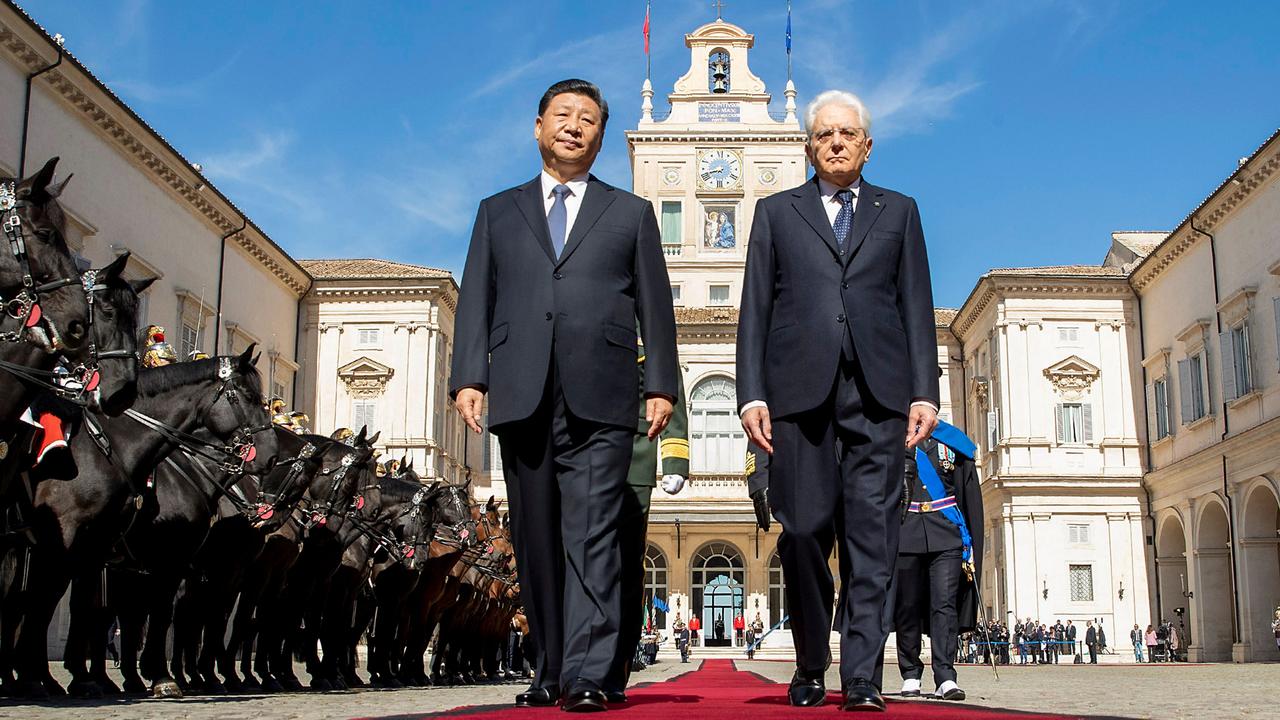South Korea flourishes despite problems
South Korea should be down and out. It has no resources, a difficult northern neighbour and faces sanctions from China.
By rights, South Korea should be down and out by now.
It has zero resources, at a time when the cost of commodities and especially energy is again soaring. It is overshadowed by its impoverished northern neighbour that constantly threatens to annihilate it. It has been targeted for a year by a wave of “unofficial” but clearly co-ordinated economic sanctions from its biggest trading partner, China.
Beijing has been fighting against South Korea’s deployment of a US-managed Terminal High Altitude Area Defence anti-missile system to help protect it against North Korean attack. China believes THAAD can scope its own defences.
Its biggest corporation, Samsung, which provides 20 per cent of its exports and 17 per cent of its GDP, has had its chief executive — the grandson of the founder — jailed for five years for bribery.
And like the rest of north Asia, its demographic profile is troubling — but although there will be resistance, it is more likely to foster immigration than its neighbours to east and west.
In the face of this perfect storm, South Korea’s economy is booming. Which is good news for Australia too, since it is our third- largest export market, and a fast growing source of tourists, students and direct investment.
South Korea grew in the last quarter by 3.6 per cent, up almost a percentage point on the same period last year. This is a very healthy pace for such a fully industrialised economy — which 60 years ago was as poor as sub-Saharan Africa.
Private and government consumption are both growing — the latter following a supplementary budget. Manufacturing grew 6.4 per cent year on year, twice the speed of the previous quarter, driven chiefly by electronics.
The latest ANZ research note on the economy said that “both the pace and breadth of growth have been impressive … Prospects that growth will hold up over the next few quarters are also bright given the ongoing strength of global trade and the expansionary fiscal policy.”
The election of President Moon Jae-in six months ago acted as a massive and quite unexpected tonic for the economy.
Moon is a liberal politician, a former human rights lawyer with little economic and no business experience.
But the nation breathed a great sigh of relief at his convincing victory, following the protracted impeachment of conservative predecessor Park Geun-hye for corruption after a lengthy period of indecision in many core policy areas.
Moon has proven pragmatic where it counts — for instance, keeping a couple of nuclear power stations open on economic grounds, after vowing to close them for environmental reasons.
His popularity rating has rarely dipped below 70 per cent since his election.
Even though Seoul is just 56km from North Korea, for people living and doing business in the South Korean capital, it’s as if that strange world did not exist.
The inflammatory language from “Supreme Leader” Kim Jong-un this year, and the threats in response from US President Donald Trump, mostly flew past the inhabitants of Seoul, who have been living under North Korean clouds of some kind for about 65 years.
One businessman there told me: “People have if anything been more worried about Trump than about Kim. Although Kim seems a lot less easy to handle than his father, no one believes there will be a war.”
The visit last week by Trump calmed nerves on that account, too. Trump did not, as feared, ramp up his previous rhetoric against the five-year-old free trade agreement with South Korea — which had cost a lot of Korean politicians immense political capital to drag over the line. The FTA will be reviewed, but now it seems within a calmer setting. The US deficit has fallen 25 per cent this year already.
And Trump’s speech, chiefly on North Korea, to the South Korean parliament in Seoul proved the best of his entire Asian tour — touching the right spots for the audience.
The relationship with China is also starting to heal. Even though a THAAD battery is already installed, Beijing has agreed a deal with Seoul that provides the basis for a return to normalisation, with Moon expected to visit China for a meeting with President Xi Jinping as soon as next month.
Lotte, a massive chaebol conglomerate, had withdrawn from China in the wake of crippling sanctions on its businesses there. But as a sign of restored business links, it has just received approval for a new $1.2 billion property development there.
But the scare created by China pushed Korean companies to diversify their markets — and their success contains a message to China, too, not to overplay its hand.
South Korea’s recovery shows above all, what can be done by being purposeful.
It has negotiated 52 FTAs, so that companies setting up production facilities there gain privileged access to most of the world’s major economies, including of course Australia’s. More than 20 per cent of its exports are produced by foreign-owned firms, with almost half the Fortune 500 corporations operating there.
The World Bank ranks it as the fourth country in the world in terms of the ease of doing business. Australia ranks 14.
It sets a high store by education and new technologies, the “Fourth Industrial Revolution”.
In February, South Korea will doubtless seize the opportunity to promote its economic confidence and capacity — perhaps even for a time surpassing the interest in its bizarre and lamentable neighbour — when it will be hosting the Winter Olympics in PyeongChang.




To join the conversation, please log in. Don't have an account? Register
Join the conversation, you are commenting as Logout